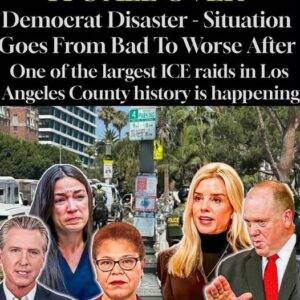A federal judge dismissed a lawsuit by churches challenging the Trump administration’s policy allowing immigration arrests near churches.
Judge Dabney Friedrich ruled the plaintiffs failed to show sufficient harm, stating concerns like declining attendance were too speculative.
The policy reversed a Biden-era rule limiting enforcement near sensitive locations, including churches and schools. Although churches claimed the policy led to empty pews, the judge said broader immigration actions could be to blame.
The ruling focused on the plaintiffs’ lack of legal standing, not the policy’s legality. In contrast, a Maryland judge blocked similar enforcement near certain religious sites.
In a recent court decision, Judge Dabney Friedrich ruled against churches challenging the Trump administration’s policy allowing immigration arrests near their premises. The lawsuit, which claimed that the policy led to declining attendance and empty pews, was dismissed on the grounds that the plaintiffs failed to demonstrate sufficient harm.
The policy in question reversed a rule put in place during the Biden administration, which limited immigration enforcement near sensitive locations such as churches and schools. While the churches argued that the policy was directly impacting their congregations, Judge Friedrich stated that the decline in attendance could be attributed to broader immigration actions rather than the specific policy in question.
It is important to note that the judge’s ruling was based on the plaintiffs’ lack of legal standing rather than the legality of the policy itself. This decision stands in contrast to a separate ruling in Maryland, where a judge blocked similar enforcement actions near certain religious sites.
This ruling has sparked mixed reactions within the community, with some praising the decision as a victory for immigration enforcement and others expressing disappointment at the potential impact on religious institutions. The debate surrounding immigration policy and enforcement near sensitive locations continues to be a contentious issue, with both legal and ethical considerations at play.
As the legal battle over immigration policy near churches continues, it is clear that this issue will remain a point of contention for the foreseeable future. The impact of these decisions on both immigrant communities and religious institutions is significant, and the outcome of these cases will undoubtedly shape the future of immigration enforcement in the United States.





